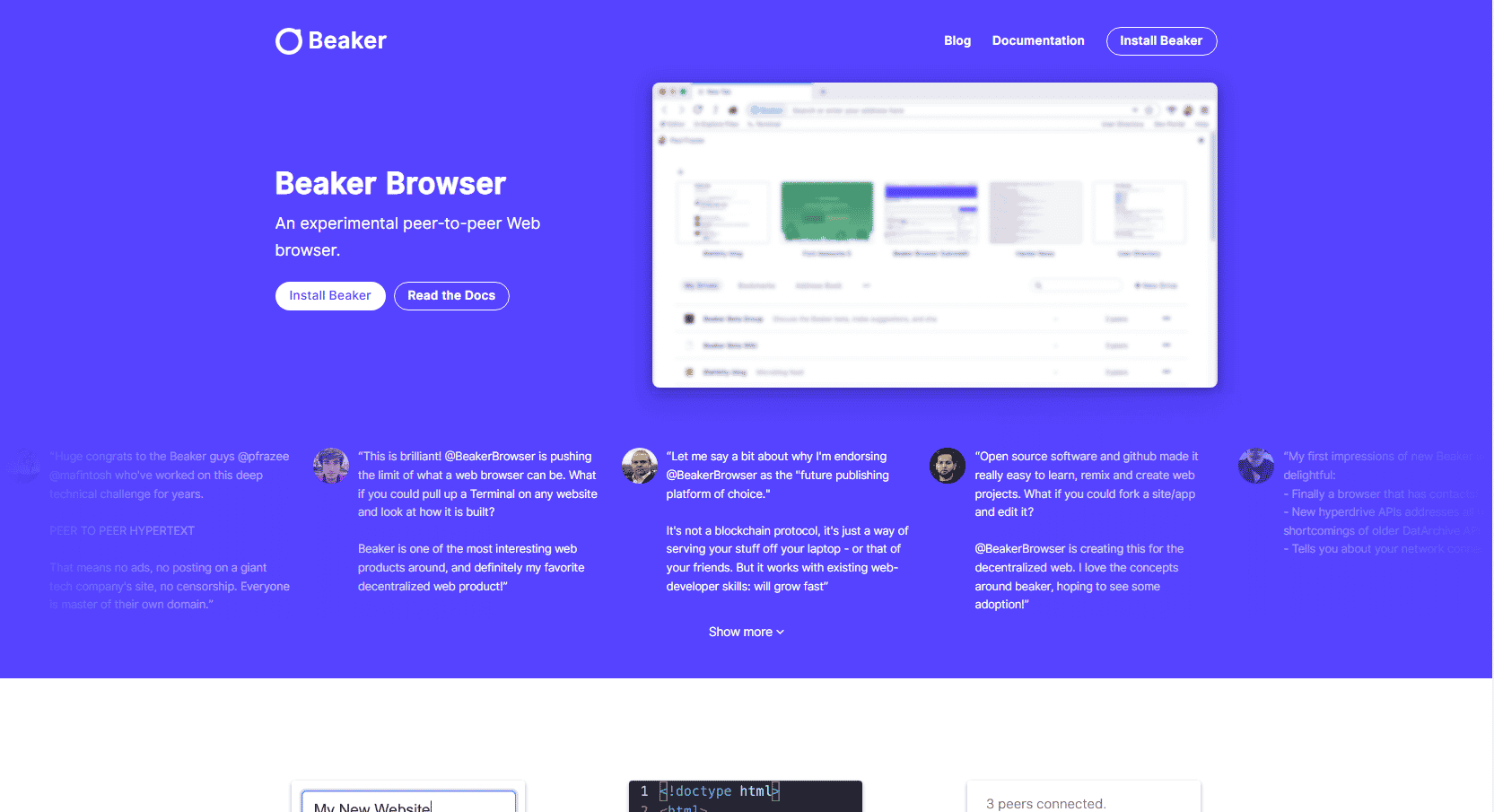
Beaker
In this product review you will learn Beaker Browser. also you will learn its features.
The web browser tool should be a creative tool for everyone. it is a popular P2P browser that has brought peer-to-peer publishing to web browsing, which turned the browser into a drastically changed tool for building websites, files, apps, and much more.
It is an open-source web browser alternative to Firefox, Waterfox, and Pale Moon. It is an experimental browser which does not mean it is unstable. The address bar and the tabs mostly look like firefox.
Beaker Browser is a P2P browser that may serve as a bridge between possible web futures and the internet. One can use it to surf the web like any other browser. It is also allows users to create and support a new, decentralized, server-less internet. Basically, websites run on the HTTP protocol but Beaker Browser runs opposite to it, it runs on DAT protocol.
What is the DAT protocol?
DAT is a user-centric web protocol, a modern protocol designed to share files between users directly. A modern web protocol allows the sharing of files from one machine to another. It is a decentralized web protocol, which allows users to directly share the files from one local machine to another without a third-party server. Just like torrent works.
Though Beaker is a DAT-based web protocol, it also allows HTTP and HTTPS files to run smoothly on it. No need to switch to other browsers for the same.

Features of Beaker:
- Inbuilt website editor
- Provides an API facilitating the creation
- Offers live reloading
- Offline syncing of website
- Works on DAT protocol
It also utilizes Hyperdrive(peer-to-peer protocol), which acts as a p2p file system and it is the place where your website gets stored. You will be given the freedom to host your website and even the other sites with hyperdrives.
The P2P nature of sharing hyperhosting reduces the cost associated with the larger website. The more visits to your site mean the more you get others too.
How does a P2P website work?
A user can create the website using a Beaker Browser. With a click of a button, the website will be hosted in the same machine where it is created. Now you can share the URL of your website to show people the masterpiece created by you.
Anyone can peep into your website as it is public. Even visitors can fork your website and modify it with minor changes and host it for themselves.
What if the Website Hosting Machine Goes Down?
If the original host of the website goes offline, then there is a risk that the whole content won’t be visible to the viewers. So it is necessary to keep the machine available for the users to see the content uninterruptedly.
As the content is shared directly between peers, the hosting machine is also peers, the more peers the more your website is available. The network is mainly consumer-driven rather than corporate-driven. Simply, more peers have fewer chances to go offline. Even if several hosts go down, still content is available.
Besides peer-to-peer hosting, we can create a seeding server in our own machine to assist the website. And can also host websites on the server like Hashbase. Hash based provides cover to our p2p website in case of an extra layer of protection for going offline.
How to discover Peer-to-peer websites or apps?
Regular traditional websites running over HTTP get registered with search engines like Google, Bing, and eventually, we discover them via search engines. Whereas torrent sites can be searched over torrent search engines.
But in the case of P2P websites, it is different, there are no universal, popular search engines. Though there are places like Hashbase, Browse Neocities, Explore Beaker but still many of the sites remain undiscovered at large scale.
The decentralization is not in the limelight, but its cult is in its infancy and genuinely gaining traction.
Conclusion:
If you wish to build the website and want to host it on your own, enjoy tinkering technology, or you can adopt a Beaker and give it a try. It Browser is an open-source web browser so you can build easily and host the same. It helps to build the “communities of trust” among your peers and to eliminate others. Linux users like to work with decentralized sites.









